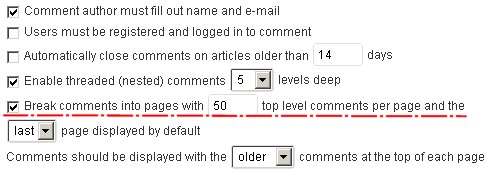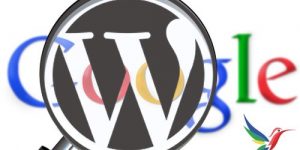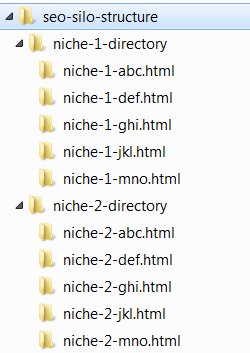Comment on Duplicate Content and Canonical URLs by SEO Dave.

1,000 page WordPress blog, 25 categories, no tags, no monthly archives: that’s a setup I’ll have on some of my sites.
My usual setup is to have a sitewide category widget, recent posts widget, popular posts widget and recent comments widget.
Categories widget is mainly for indexing/passing PR reasons, without them deeper content is too many clicks away from the home page (where most PR flows through).
Recent Posts links change regularly, even on my sites where no new content is added I use a plugin (one of my plugins I’ve not got around to releasing) that randomly redates posts to today’s date (recent posts links are always changing). Having sitewide recent posts widget on a site with regular new content means that new content is going to be found quickly by search engines (you can’t assume your home page where the recent posts are linked will be visited daily), with any time sensitive content this is a must use widget.
Popular Posts widget (which is usually based on number of comments) is both for SEO reasons (you want your popular content to have more links, keep it popular) and so your visitors can easily find your interesting content, keep them on the site longer.
Recent comments mainly for visitors, keep them interested.
All the above has value and costs, the main value is more links to content, categories for example with a sitewide widget are passing a decent chunk of link benefit through the categories which gets to the posts (the important content). Without that stable PR flowing from every page of the site to the categories and into the posts where does the bulk of the PR to those posts come from?
Without categories or another sitewide source of link benefit to spread the benefit some posts are going to miss out on links, even with categories if your categories are multiple pages older content misses out: the 1,000 post example if spread over 30 categories it’s 33 posts per category, with the standard 10 posts per category each is three to four levels deep, the post on pages 3 and 4 aren’t going to get much link benefit.
Remember every link from a page gains a fair share of the link benefit from that page (not the site), if all you have is a sitemap with 1,000 links that’s practically no link benefit, sitemaps are pretty much worthless SEO wise because on large sites the link benefit passed is practically none and on small sites a sitemap isn’t needed anyway. When you understand how Googlebot works you can see having a page with 1,000 links as the only source of guaranteed links is not a good idea as the only guaranteed source of finding the 1,000 pages: Googlebot hits a page and randomly follows links, it doesn’t find a page with 1,000 links and spiders them one by one, it’s like a rat running randomly through a maze (the entire Internet) and each time it hits a page with links (junctions) it randomly follows one. A page with two links 50% chance a particular link will be followed, 1,000 links 0.1% a link will be followed. It’s why I don’t use sitemaps, my sitemap are the categories.
The above is dealing with PR flow, making sure an entire site can be easily spidered, the extreme conclusion of the above is let’s forget about categories and sitemaps and links to every post of a site on every page, lets have 1,000 links on every post!
Which then brings us to the SEO cost of links from a page. Anchor text from a page is more important than body text, if you want to go for maximum SEO a page will ONLY have links from the page using relevant anchor text. A page about Chicken Recipes should only have links with anchor text using Chicken Recipes and derivative SERPs (chicken, recipes, recipe, cooking, poultry….) so when Google indexed the page it screams this page is definitely about chicken recipes :-)
We now have two competing and important SEO factors, we want all content on a site well linked and we want all links from a page to have relevant anchor text.
My compromise is to try to limit the instances of non relevant anchor text to a minimum while making sure everything is linked.
If you have lots of spare time (I don’t) manually edit your posts to link to relevant posts on the site, if you have a page about chicken recipes edit the content and link from within the content to other pages on your site and other sites you own that’s about chicken and recipes derivative SERPs. Don’t have much spare time automate it with plugins like the Stallion Related Posts WordPress SEO Plugin (needs an update) and it will try to link to relevant content automatically for you.
With a large site you could break your categories widget into small more relevant sets for specific types of content. Manually create a text widget with say 5 categories that are highly relevant to one another and only use that text widget on those 5 categories (Stallion feature to limit widgets to specific categories/pages). With a large site and a lot of categories you could significantly reduce the number of category links sitewide, with my 30 category example broken into 5 category sets that’s 25 links removed from each page. This would still be enough for each post to be indexed etc… but significantly reduce the number of categories.
I’ve done something similar at which has over 132,000 posts over hundreds of categories, couldn’t have hundreds of categories on every post so limited it to the top level categories (27 of them) only: site search shows 230,000 pages indexed, so it’s working on the indexing front.
David


More Comments by SEO Dave
WordPress SEO Duplicate Content
SEO Value of WordPress Paginated Comments
For Stallion Responsive users don’t add the code discussed in the comment I’m responding to, Stallion has a better SEO solution built in.
The problem with your code fix is it removes the value of having a lot of comments, with …
Continue Reading Duplicate Content SEO
WordPress SEO Duplicate Content
Stallion Responsive Theme Paged Comments Advanced SEO
Been working on new features for Stallion for well over a year, but as explained in other comments for health reasons had to put working on Stallion on hold. Have been able to spend about a week working on Stallion …
Continue Reading Duplicate Content SEO
WordPress SEO Duplicate Content
Google Panda Update and Duplicate Content
You inspired an article at Google Panda Update and Duplicate Content.
From a Stallion theme perspective quite a bit of the template content is unique that in most WordPress themes isn’t.
Comment headings like “Leave a reply to” include the title of …
Continue Reading Duplicate Content SEO
WordPress SEO Duplicate Content
WordPress Theme Duplicate Content?
Unlikely to be a theme issue, have no experience with the plugin, so no idea what the problem is.
David …
Continue Reading Duplicate Content SEO
WordPress SEO Duplicate Content
WordPress SEO Duplicate Content and Canonical URLs
With all WordPress themes on my site there are no major duplicate content issues, they are dealt with at theme level as long as you are sensible with how you create your site.
On archive pages rather than use the full …
Continue Reading Duplicate Content SEO
WordPress SEO Duplicate Content
WordPress SEO : How to Avoid Duplicate Content
LOL, I’ve updated all the themes for sale on this site and currently updating the theme files of all my WordPress sites (updated all my WordPress installations to WordPress 2.7.1 yesterday) as a way to test the theme updates I …
Continue Reading Duplicate Content SEO